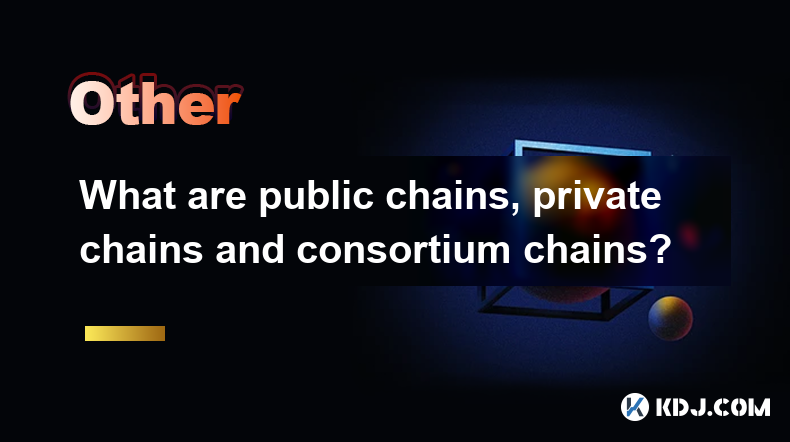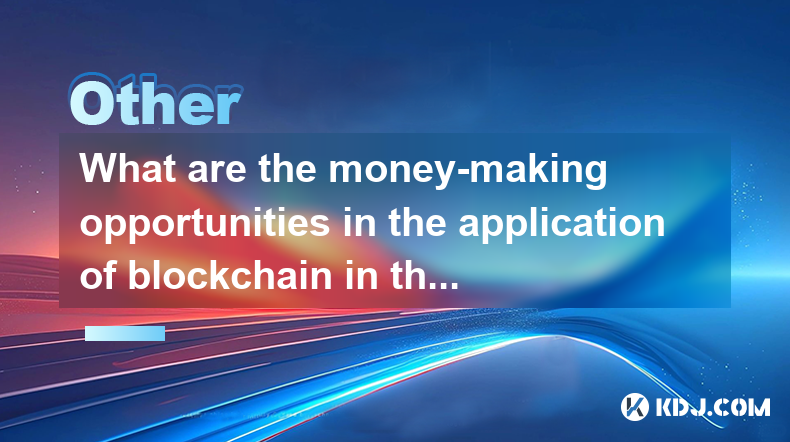-
 Bitcoin
Bitcoin $78,719.2006
-5.56% -
 Ethereum
Ethereum $1,583.1656
-12.44% -
 Tether USDt
Tether USDt $0.9998
0.01% -
 XRP
XRP $1.9088
-10.76% -
 BNB
BNB $560.9083
-5.15% -
 USDC
USDC $1.0004
0.04% -
 Solana
Solana $106.3174
-11.37% -
 Dogecoin
Dogecoin $0.1478
-12.16% -
 TRON
TRON $0.2291
-2.88% -
 Cardano
Cardano $0.5760
-11.29% -
 UNUS SED LEO
UNUS SED LEO $8.9099
-2.51% -
 Chainlink
Chainlink $11.2991
-11.88% -
 Toncoin
Toncoin $2.9368
-9.64% -
 Stellar
Stellar $0.2262
-10.37% -
 Shiba Inu
Shiba Inu $0.0...01137
-7.50% -
 Avalanche
Avalanche $16.0961
-7.76% -
 Sui
Sui $1.9171
-12.64% -
 Hedera
Hedera $0.1405
-12.85% -
 MANTRA
MANTRA $6.0521
-3.00% -
 Polkadot
Polkadot $3.6466
-7.23% -
 Bitcoin Cash
Bitcoin Cash $274.4163
-8.88% -
 Dai
Dai $1.0002
0.01% -
 Litecoin
Litecoin $70.2845
-14.71% -
 Ethena USDe
Ethena USDe $0.9989
-0.04% -
 Bitget Token
Bitget Token $4.1349
-7.18% -
 Pi
Pi $0.5928
-11.07% -
 Monero
Monero $201.4462
-6.45% -
 Hyperliquid
Hyperliquid $10.5838
-10.85% -
 Uniswap
Uniswap $5.1326
-12.02% -
 OKB
OKB $51.8936
-1.05%
What are public chains, private chains and consortium chains?
Public chains prioritize decentralization and transparency, while private chains offer speed and control, and consortium chains balance both, allowing multiple organizations shared governance.
Mar 13, 2025 at 12:50 pm

Key Points:
- Public Chains: Open, permissionless networks offering transparency and decentralization, but potentially slower and less scalable. Security relies on the distributed nature of the network.
- Private Chains: Permissioned networks offering high speed and scalability, but sacrificing decentralization and transparency. Control resides with a central authority.
- Consortium Chains: Hybrid approach combining elements of public and private chains. Multiple organizations share control, offering a balance between decentralization and efficiency.
What are Public Chains?
Public chains are the most decentralized type of blockchain network. Anyone can participate, whether it's sending transactions, validating them (through mining or staking), or developing applications on the platform. This open and permissionless nature fosters transparency, as all transactions are recorded on a publicly accessible ledger. Examples include Bitcoin and Ethereum. However, this openness can lead to scalability issues and slower transaction speeds compared to private or consortium chains. The security of a public chain relies on the vast number of participants securing the network.
Security in Public Chains
The security of a public chain relies on its decentralized nature. A massive distributed network makes it computationally infeasible for a single entity or even a group to manipulate the blockchain. The cryptographic algorithms used further enhance security. However, vulnerabilities in smart contracts or consensus mechanisms can still be exploited, emphasizing the ongoing need for security audits and improvements. Furthermore, the sheer size of some public chains can lead to slower transaction processing times.
What are Private Chains?
In contrast to public chains, private chains are permissioned networks. Access is restricted to authorized participants, chosen by a central authority that controls the network. This allows for faster transaction speeds and higher scalability due to the controlled environment. Privacy is also enhanced, as only authorized users can view the transaction history. However, this centralized control compromises the decentralization and transparency often associated with blockchain technology. Private chains are often used within organizations for internal processes.
The Control in Private Chains
A single entity or organization typically controls a private chain. This centralized authority manages network parameters, validates transactions, and has complete oversight. While this provides speed and control, it also introduces a single point of failure and the potential for censorship. The lack of transparency and the concentration of power can raise concerns about trust and accountability. The security of a private chain relies heavily on the security measures implemented by the controlling entity.
What are Consortium Chains?
Consortium chains represent a middle ground between public and private chains. Multiple organizations share control and governance of the network, creating a permissioned yet more decentralized system than a purely private chain. This allows for collaboration and shared responsibility, while still maintaining a degree of control and efficiency. The degree of decentralization varies depending on the number of participating organizations and their respective roles. Examples of consortium blockchains include R3 Corda and Hyperledger Fabric.
Governance and Participation in Consortium Chains
Governance in a consortium chain is typically defined by a pre-agreed framework. Participating organizations share responsibility for maintaining the network, validating transactions, and making decisions about its future development. This collaborative approach aims to balance the benefits of decentralization with the need for efficiency and control. However, the governance structure must be carefully designed to prevent any single organization from dominating the network.
Comparing Public, Private, and Consortium Chains
Choosing between a public, private, or consortium chain depends on specific needs and priorities. Public chains offer the highest level of decentralization and transparency, while private chains prioritize speed and control. Consortium chains attempt to strike a balance between these two extremes. Factors to consider include the required level of decentralization, transaction speed, security requirements, and the need for privacy.
Common Questions and Answers:
Q: Which type of chain is most secure?
A: Public chains are generally considered more secure due to their decentralized nature and large number of participants. However, proper security measures are crucial for all chain types.
Q: Which type of chain is fastest?
A: Private chains typically offer the fastest transaction speeds because of their centralized control and smaller network size.
Q: Which type of chain is best for a large organization?
A: A consortium chain or a private chain might be suitable, depending on the organization's need for transparency and control. A private chain offers more control but less transparency.
Q: Can a private chain be used for public applications?
A: No, a private chain's permissioned nature prevents its use for applications requiring open participation.
Q: What are the limitations of public chains?
A: Public chains can be slower and less scalable than private or consortium chains, and they may have higher transaction fees.
Q: What are the risks associated with private chains?
A: The centralized control of private chains introduces risks associated with single points of failure and the potential for censorship or manipulation.
Q: What are the benefits of consortium chains?
A: Consortium chains offer a balance between decentralization, speed, and control, allowing for collaboration and shared governance.
Disclaimer:info@kdj.com
The information provided is not trading advice. kdj.com does not assume any responsibility for any investments made based on the information provided in this article. Cryptocurrencies are highly volatile and it is highly recommended that you invest with caution after thorough research!
If you believe that the content used on this website infringes your copyright, please contact us immediately (info@kdj.com) and we will delete it promptly.
- 4 Best Cryptos to Buy That Could Deliver High Potential Returns
- 2025-04-07 10:15:25
- Nexus Partners with Orochi Network to Deliver a Verifiable Internet on Web3
- 2025-04-07 10:15:25
- XRP Has Found Itself Back in the Spotlight as Market Momentum Builds
- 2025-04-07 10:10:11
- As we enter Q2 of 2025, the global crypto market finds itself steering a complex intersection of macroeconomic and geopolitical pressures.
- 2025-04-07 10:10:11
- Mutuum Finance (MUTM) Quietly Rallies 25% as It Enters the Next Phase of Its Presale
- 2025-04-07 10:05:12
- Intercontinental Exchange Inc. Has Announced That It Signed a Memorandum of Understanding with Circle Internet Group, Inc.
- 2025-04-07 10:05:12
Related knowledge

Is the ranking of Chinese blockchain apps real and reliable?
Apr 04,2025 at 09:01pm
The ranking of Chinese blockchain apps has become a topic of interest for many in the cryptocurrency community, as it provides insights into the popularity and adoption of blockchain technology within China. However, the reliability and authenticity of these rankings are often questioned. This article aims to delve into the factors that influence these ...

What are the future development trends of blockchain game development?
Apr 03,2025 at 05:00am
Blockchain technology has revolutionized various industries, and gaming is no exception. As we look to the future, several trends are set to shape the development of blockchain games. These trends not only promise to enhance the gaming experience but also to integrate blockchain technology more seamlessly into the gaming ecosystem. Let's explore these t...

What are the high-return opportunities for blockchain investments?
Apr 05,2025 at 02:35pm
Blockchain technology has revolutionized the financial world, offering numerous high-return investment opportunities. These opportunities span various sectors within the cryptocurrency ecosystem, including cryptocurrencies, decentralized finance (DeFi), non-fungible tokens (NFTs), and blockchain startups. Each of these areas presents unique risks and re...

What are the maintenance costs of blockchain system development?
Apr 03,2025 at 06:07pm
The maintenance costs of blockchain system development are multifaceted and depend on various factors. These costs can include technical maintenance, security updates, infrastructure expenses, and personnel costs. Understanding these elements is crucial for anyone planning to develop or maintain a blockchain system. Technical MaintenanceTechnical mainte...

What are the money-making models of blockchain games?
Apr 04,2025 at 02:00pm
Blockchain games have emerged as a revolutionary way for players to earn real money while enjoying their favorite pastime. These games leverage the power of blockchain technology to create unique money-making models that benefit both the players and the developers. In this article, we will explore the various money-making models of blockchain games and ...

What are the money-making opportunities in the application of blockchain in the field of Internet of Things?
Apr 05,2025 at 10:35pm
The integration of blockchain technology with the Internet of Things (IoT) presents numerous money-making opportunities. Blockchain, with its decentralized and secure nature, can revolutionize how IoT devices interact, manage data, and conduct transactions. This article will explore various avenues where entrepreneurs, developers, and investors can capi...

Is the ranking of Chinese blockchain apps real and reliable?
Apr 04,2025 at 09:01pm
The ranking of Chinese blockchain apps has become a topic of interest for many in the cryptocurrency community, as it provides insights into the popularity and adoption of blockchain technology within China. However, the reliability and authenticity of these rankings are often questioned. This article aims to delve into the factors that influence these ...

What are the future development trends of blockchain game development?
Apr 03,2025 at 05:00am
Blockchain technology has revolutionized various industries, and gaming is no exception. As we look to the future, several trends are set to shape the development of blockchain games. These trends not only promise to enhance the gaming experience but also to integrate blockchain technology more seamlessly into the gaming ecosystem. Let's explore these t...

What are the high-return opportunities for blockchain investments?
Apr 05,2025 at 02:35pm
Blockchain technology has revolutionized the financial world, offering numerous high-return investment opportunities. These opportunities span various sectors within the cryptocurrency ecosystem, including cryptocurrencies, decentralized finance (DeFi), non-fungible tokens (NFTs), and blockchain startups. Each of these areas presents unique risks and re...

What are the maintenance costs of blockchain system development?
Apr 03,2025 at 06:07pm
The maintenance costs of blockchain system development are multifaceted and depend on various factors. These costs can include technical maintenance, security updates, infrastructure expenses, and personnel costs. Understanding these elements is crucial for anyone planning to develop or maintain a blockchain system. Technical MaintenanceTechnical mainte...

What are the money-making models of blockchain games?
Apr 04,2025 at 02:00pm
Blockchain games have emerged as a revolutionary way for players to earn real money while enjoying their favorite pastime. These games leverage the power of blockchain technology to create unique money-making models that benefit both the players and the developers. In this article, we will explore the various money-making models of blockchain games and ...

What are the money-making opportunities in the application of blockchain in the field of Internet of Things?
Apr 05,2025 at 10:35pm
The integration of blockchain technology with the Internet of Things (IoT) presents numerous money-making opportunities. Blockchain, with its decentralized and secure nature, can revolutionize how IoT devices interact, manage data, and conduct transactions. This article will explore various avenues where entrepreneurs, developers, and investors can capi...
See all articles





















































































